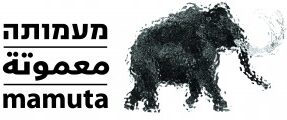July 7-9, 2013, Jerusalem
Call for papers and proposals
Autonomy & Anatomy of the Moving Image: Video & Experimental Cinema in the Last Decade
An international symposium on video art and experimental cinema to be held at the Mamuta Art and Media Center at Hansen Compound, Jerusalem
The Mamuta Art and Media Center, The Hebrew University of Jerusalem School of the Arts at the Faculty of the Humanities, Arts, Technology, Media and Science Interfaces Seminar, Bezalel Academy of Arts and Design – Department of Screen-Based Arts, the Jerusalem Cinematheque, and the Jerusalem Film Festival.
with the support of the Ostrovsky Family Fund and Hansen Compound
Deadline for submission of all Proposals: 31.3.2013
Proposals will be received by email at: conference.intersections@gmail.com
Answers will be given: 18.4.2013
On the occasion of the tenth anniversary of “Intersections”, the Israeli Video Art and Experimental Film Competition, an International Symposium on Video Art and Experimental Cinema will be held on July 7-9, 2013, in the frame of the 30th Jerusalem Film Festival. The symposium will take place at the Mamuta Art and Media Center at Hansen Compound, Jerusalem.
The organizing committee invites scholars and artists to submit proposals for individual papers, organized panels, screenings, and roundtable discussions related to the theme of the conference: “Autonomy & Anatomy of the Moving Image: Video & Experimental Cinema in the Last Decade.”
The conference will explore the ways in which developments in new technologies have turned the Internet into a new platform where the digital/network platform replaces the more traditional support – the tape.
We invite papers that address the narrative and aesthetic developments that are made possible by mechanisms of network and digital media: deconstruction, interaction, randomization, multi-layeredness, browser dependence, real-time broadcast and editability; alteration, combination, and incorporation of various media into video (medium or video elements within them). Youtube, cell phone, and ipad video-culture on the one hand, and the availability of cutting-edge technologies for independent artists and amateurs, on the other hand, have dramatically altered the language, use, possibilities and ways of promotion of moving-image works.
The conference will also address the “war on terror” policy, which has developed and justified all-embracing practices of control and monitoring in the name of “national security.” In every coffee shop in the city, in every store, mall, university, hospital, and even getting onto a city bus, one is under the vigilant gaze that guards “our security,” a reminder of the constant presence of built-in systems of control and paranoia, which become invisible at moments of calm. The state justifies these practices in the name of self-defense, in an attempt to defend the established order, its interests, ideology, and its structures of power to protect itself from the threat of hostile elements. In the face of this use, in which video has become one of the central instruments of state control, subversive video practices have been developed by artists and activists, developing not only new social and political practices for “powerless” individuals and groups, but also influencing and re-defining the aesthetics, poetics, and politics of video/art in the last decade or more, from the 9/11 attacks and until the Arab spring.
Individual paper, panel, and screening proposals should be submitted to the seminar programming committee by mail to: conference.intersections@gmail.com
Individual paper proposals should include an abstract and should not exceed 250 words. Panel proposals should include information on the panel theme and on each individual paper, and should not exceed 750 words.The committee encourages scholars and artists to submit proposals for screenings as well.
Suggested Topics for Panels & Screenings
● The seam line between video art and experimental cinema
● Poetics and politics of the media in the last decade
● Video games and video art
● Video and internet: online and live practice
● Between art and activism: the use of document video for artistic and activist outputs
● Surveillance, counter-surveillance, and video art
● Satire and humour in contemporary video art
● Analog vs. Digital: time in the digital age
Program Committee
Prof. Edwin Seroussi (Hebrew University of Jerusalem)
Dr. Tal Ben-Zvi (Bezalel Art Academy)
Dr. Hava Aldouby (Hebrew University of Jerusalem)
Ms. Sharon Balaban (Bezalel Art Academy)
Ms. Lea Mauas (Mamuta Art and Media Center, Bezalel Art Academy)
Mr. Diego Rotman (Mamuta Art and Media Center, Hebrew University of Jerusalem)
For questions please contact Ms. Lea Mauas: conference.intersections@gmail.com
